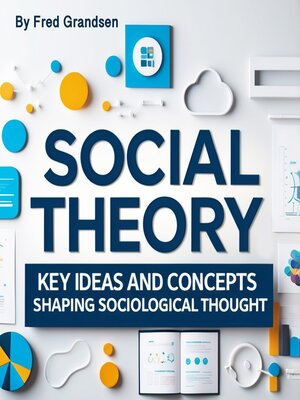Social Theory
audiobook (Unabridged) ∣ Key Ideas and Concepts Shaping Sociological Thought
By Fred Grandsen

Sign up to save your library
With an OverDrive account, you can save your favorite libraries for at-a-glance information about availability. Find out more about OverDrive accounts.
Find this title in Libby, the library reading app by OverDrive.



Search for a digital library with this title
Title found at these libraries:
| Library Name | Distance |
|---|---|
| Loading... |
Social theory provides a framework for understanding how societies function, how individuals interact, and how social structures shape human behavior. It encompasses a wide range of perspectives that seek to explain social order, change, and the relationships between individuals and institutions. By analyzing patterns in human behavior, power dynamics, and cultural influences, social theory helps us interpret the complexities of the modern world. Sociologists use these theories to examine issues such as inequality, globalization, identity, and technological change, offering insights that inform public policy, activism, and everyday life.
The origins of social theory can be traced back to early philosophical inquiries about society, morality, and governance. Thinkers such as Plato, Aristotle, and Confucius considered questions about justice, social order, and the ideal state. However, modern social theory emerged during the 19th and early 20th centuries in response to major social transformations such as industrialization, urbanization, and political revolutions. Pioneering sociologists, including Karl Marx, Emile Durkheim, and Max Weber, developed foundational theories to explain the impact of these changes on social life. Their work laid the groundwork for various theoretical traditions that continue to shape sociological inquiry today.
Social theories can be broadly categorized into macro and micro perspectives. Macro-level theories, such as structural functionalism and conflict theory, focus on large-scale social structures and institutions. These perspectives analyze how societies maintain stability, how power is distributed, and how systemic inequalities emerge. Micro-level theories, such as symbolic interactionism, examine individual interactions and the meanings people attach to their experiences. These approaches emphasize the role of language, symbols, and everyday social interactions in shaping identity and behavior.







